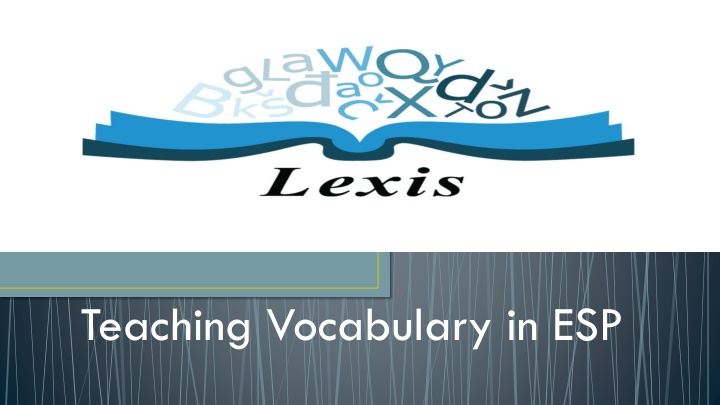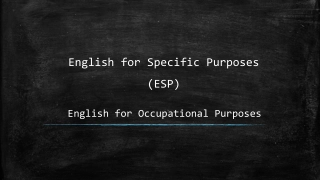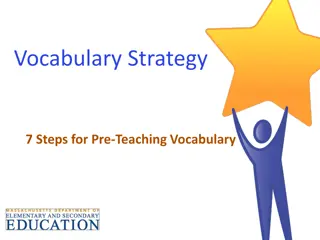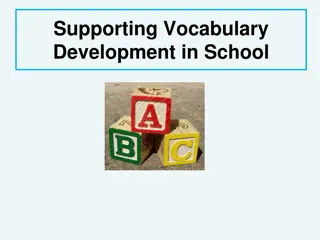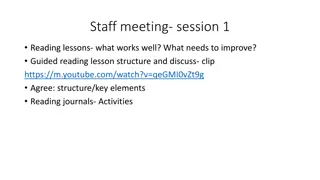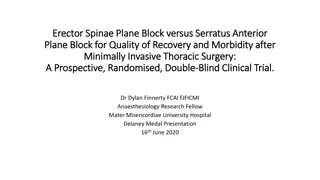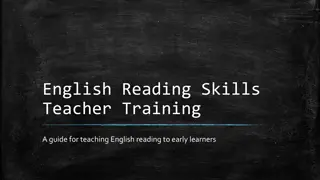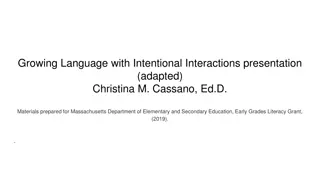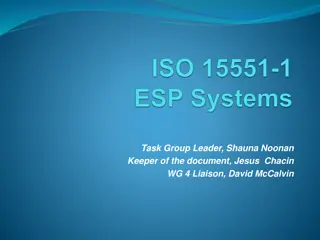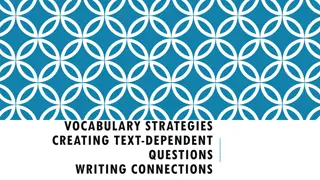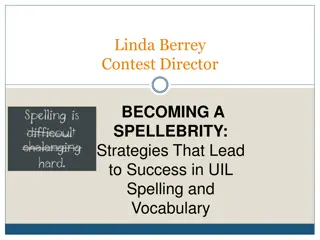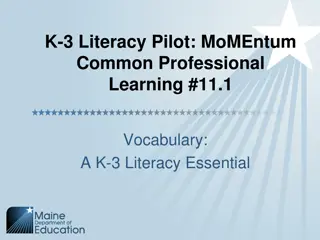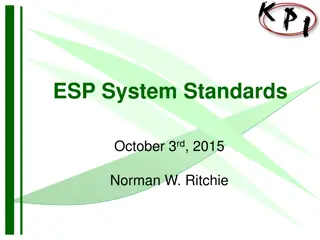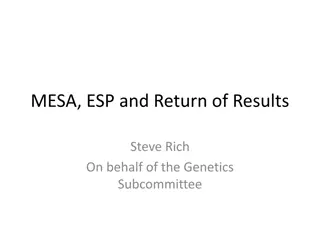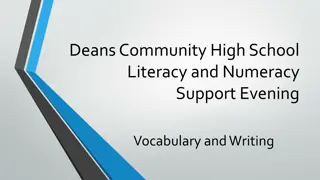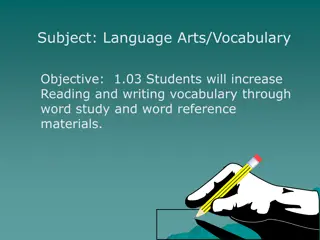Teaching Vocabulary in ESP
Explore the significance of vocabulary in ESP courses, including types of vocabulary, sources, amount to teach, active vs. passive vocabulary, and priorities in teaching vocabulary effectively.
Download Presentation

Please find below an Image/Link to download the presentation.
The content on the website is provided AS IS for your information and personal use only. It may not be sold, licensed, or shared on other websites without obtaining consent from the author.If you encounter any issues during the download, it is possible that the publisher has removed the file from their server.
You are allowed to download the files provided on this website for personal or commercial use, subject to the condition that they are used lawfully. All files are the property of their respective owners.
The content on the website is provided AS IS for your information and personal use only. It may not be sold, licensed, or shared on other websites without obtaining consent from the author.
E N D
Presentation Transcript
Teaching lexis in ESP Teaching Vocabulary in ESP
Outline Theimportance of vocabulary in ESP course Types of vocabulary Active and passive vocabulary More vocab teaching aspects
ESP GE Vocabulary 20% 10% Grammar 10% 20% Pronunciation 5% 5% Functional Language 20% 5% Reading 5% 10% Writing 5% 10% Listening 10% 10% Speaking 20% 20% Other 5% 10% Total 100% 100%
Types of vocabulary Non-target Target Emergent
Sources of vocabulary Technical dictionary or glossary Authentic reading and listening texts incorporated into the course Respected text books Learners themselves
Amount of vocabulary How many words do you usually give your students to learn per lesson? 10 20 15
Active and passive vocabulary administrator benefactor beneficiary codicil dependants estate executor inherit inheritance intestate will power of attorney probate testament trust trustee damages commit offence claimant evidence fine injunction Active Vocabulary Passive Vocabulary I don t know these words Administrator commit Will offence Estate evidence Executor testament Enherit fine Inheritance claimant Probate Trust damages Benefactor Beneficiary Dependant injunction trustee Codicil power of attorney Probate intestate
a) I want to be able to use words well I want to understand them I want to be able to use words well Non- Passive vocabulary Active vocabulary vocabulary I don t need to know them I don t need to know them I don t need to know them
Vocab priorities a. Continue teaching words/phrases Ss already know passively b. Explain rationale c. Keep expectations reasonable d. Keep expectations in mind when devising assessments e. Teach words several times before Ss use them fluently
Word combinations Dependent prepositions collocations compounds Lexical sets patterns
Other things to teach Types of meanings (semantic and pragmatic) Different registers Denotation Connotation Word formation Synonyms Antonyms
Ah NOW I know that word! Spelling Pronunciation Changes in word stress Parts of speech Grammatical patterns Collocations False friends Level of frequency Etymology Translation Synonyms Antonyms Different meanings depending on context Definition
THANK YOU FOR YOUR ATTENTION
